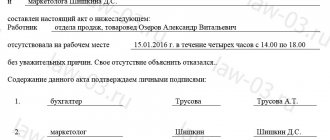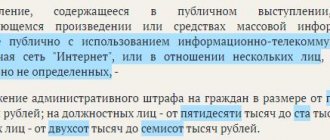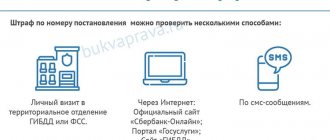Insult as a legal term
Insult is a humiliation of a person’s honor and dignity. Signs of insult include the following factors:
- intentionally committing offensive acts;
- an offensive message may be exposed: in the form of obscene language,
- in comparison with animals or objects,
- display of indecent gestures.
It is worth noting: insult does not always mean the use of obscene language.
Speech consisting only of words of a literary language, but carrying an obscene, offensive meaning, is also considered an offense. The insult can be inflicted verbally or in writing, or contained in an audio or video recording.
Let's look at an example of what can be considered an insult, as a fact of an administrative offense. A man came to the post office to receive a registered letter. Seeing the huge queue, he began to be indignant, using profanity. This act cannot be classified as an insult. If a man addressed these words to a specific postal employee, then it would be considered an insult.
Insult at work is a special case of an administrative offense. Insult during the work process can be caused:
- colleague,
- boss,
- by a third party.
Let's consider further what kind of insult in the workplace can be.
other methods
Insults may also contain anonymous letters planted in the mailbox, as well as emails from fictitious users. In this case, it is difficult to get the perpetrator punished because the authors are very difficult to identify. Cases that occur when a large number of people gather are best investigated. There are always witnesses and people who made a video recording of the incident. If the insult was in video material or in print media, then they are considered evidence of offensive actions.
The insult must not only be derogatory to dignity and honor. It must be expressed in an indecent form that leaves no doubt about the intentionality of these actions.
Any case of insult requires a separate approach. You need to be consistent in your actions to ensure that the offender is brought to justice.
Legal regulation of the situation
An insult during the work process can be inflicted on both an individual and a government representative. Various legislative codes deal with the regulation of these conflicts.
Insult to physical faces are a manifestation of interpersonal relationships, therefore the measures of influence are indicated in the Code of Administrative Offenses (CAO) of the Russian Federation, in Article 5.61. The Constitution guarantees the protection of the honor and dignity of every citizen of the Russian Federation; this is stated in Chapter 21. If the insult is combined with the use of real threats to health or life, then this is classified as a criminal offense and, accordingly, is under the jurisdiction of the Criminal Code. Find out here what the punishment is according to the Criminal Code of the Russian Federation for threats of violence.
Insulting a citizen in public service entails criminal liability. Such conflicts are considered by the Criminal Code (CC) of the Russian Federation. More information about insulting a government official can be found on the pages of our Internet portal - https://lexconsult.online/5855-privlechenie-k-ugolovnoi-otvetstvennosti-za-oskorblenie-predstavitelya-vlasti.
Written offensively
In one of its recent decisions, the Trans-Baikal Regional Court ordered a citizen who sent a “hot” SMS to pay 5 thousand rubles as compensation for moral damage to his addressee.
It is noteworthy that the court of first instance, having studied the message, did not find anything in it that went beyond the law. Yes, the text was clearly unpleasant for the recipient, but for some reason the lower court decided that the sender, although offending the recipient, did not defame him enough to be punished for it with a ruble. The second instance did not agree with this conclusion.
“The court of first instance considered that the disputed text of the SMS did not contain information discrediting the plaintiff and refused to satisfy the claims,” the Trans-Baikal Regional Court says.
The Judicial Collegium for Civil Cases of the Trans-Baikal Regional Court overturned this court decision because, having analyzed the screenshots of SMS messages received from the defendant presented by the plaintiff, it came to the conclusion that these statements contained unacceptable expressions that were unacceptable to society, and derogatory comparisons were applied to the plaintiff, which are offensive in nature, SMS messages contain invective language.”
Invective language is foul language, by the way, not necessarily obscene.
One point is important in the legal position of the Trans-Baikal Regional Court: the concept of defamatory information is actually expanding. Narrow approach: to satisfy a claim for protection of honor and dignity, it must be about negative false information about a person. For example, that he is a thief, although in fact he has never even stolen a silver spoon in his life. If you simply call a person a pig or curse him, then this is not defamatory information, but a banal insult. This should be punished under the Code of Administrative Offences. The fine under the relevant article is from 1 to 3 thousand rubles.
A broad approach: any insult is already a reason to protect the honor and dignity of a person. Call your neighbor a pig, reach into your pocket and pay him compensation.
The decision of the Trans-Baikal Regional Court is not unique; the practice is already gaining momentum. The usual amount of compensation for moral damage in cases of electronic harassment is 5-10 thousand rubles. Plus, the defendant must pay court costs.
The usual amount of compensation for moral damage in cases of insults on the Internet or SMS messages is 5-10 thousand rubles
A similar approach can be used when receiving offensive SMS messages, and offensive messages in instant messengers, and, naturally, to rein in Internet trolls - those who like to throw mud at their interlocutors on the Internet.
By the way, experts have recorded a sharp increase in cases of electronic bullying. While at home, not everyone sends bright emoticons across the Internet; for many, electronic swearing has become a lifestyle. And now online trolls have a lot of extra time.
The procedure is as follows: it is advisable to first write a statement to law enforcement agencies and obtain punishment under the Code of Administrative Offences. Then file a lawsuit for protection of honor and dignity. The decision to punish the offender will be additional evidence. But you can immediately file a claim in court.
“Since 2011, the Code of Administrative Offenses of the Russian Federation has contained a norm providing for liability for insulting citizens, including in the media,” notes Dmitry Lipin, Deputy Executive Director of the Chief of Staff of the Russian Lawyers Association. “At the same time, this provision does not contain a special clause providing for liability for insult on social networks.”
The difficulty of bringing to justice for insult on the Internet is that it is necessary to use resources and carry out a number of technical measures in order to establish the identity of the author of the insults, since the Internet still allows maintaining a certain degree of anonymity.
In addition, there is a risk that information necessary for legal proceedings can be quickly removed from the source. On the Internet, deleting your message is as easy as shelling pears. Messengers also have the ability to erase your messages from other phones if you smell something fried. Therefore, experts advise first of all to record the facts of insults on the Internet with a notary. The notary will examine all the necessary Internet pages: correspondence in email, social networks, etc. and draw up a protocol.
The protocol has no statute of limitations, as it reflects information as of the date of its preparation. Thus, if information from the site is deleted after 10 minutes, a day or a week, the record will still remain indisputable evidence during the trial. Since all notarized documents have increased evidentiary value in court, the facts reflected in the protocol will not require additional confirmation. And if the applicant’s rights were violated, he will be compensated for damages or moral harm.
From December 29, 2021, Russian citizens will have the opportunity to apply for security of evidence without leaving home: a law will come into force allowing such notarial acts to be carried out in a remote format.
According to the Federal Notary Chamber, every year the number of requests to a notary for such a service grows by an average of 15-20 percent.
Measures of influence on the offender
Evidence of guilt
Regardless of which authority the victim applies to, the main condition for punishing the offender will be correctly collected high-quality evidence of his guilt. Evidence may include video recordings from office surveillance cameras, audio recordings from a voice recorder, as well as testimony from witnesses who witnessed the conflict.
The most common type of harassment in the workplace is when the employee is the victim and the boss is the offender. Regardless of who initiated the insult, there are several ways to adequately, without using retaliatory insults, punish the instigator of the conflict:
- contact the police;
- write a statement to the prosecutor's office;
- file a lawsuit for personal injury;
- solve a problem at the enterprise where the citizen works by drawing up a memo.
It is logical that if the insult came from a work colleague, then you need to complain to your superiors. If your boss insulted you, then it is better to contact the prosecutor’s office, the police or the court.
An appeal to any of the listed authorities requires a formalized document that clearly states all the facts of the incident and the requirements for resolving the conflict. Such a document is a memo.
Where to contact
Speaking about where you can turn if you have been insulted, it is worth noting that the application is submitted to:
- police;
- the prosecutor's office;
- court.
You can write to the district police officer about the threats that have been received against you. In this case, you need to find out the reception schedule for citizens and contact it during business hours. After the conversation, the employee will explain how to write the application correctly. When it is not possible to visit the local police officer, you can contact the police department. The officer on duty will accept the document and then hand it over to the same district police officer for review.
It is possible to file the pending claim with the prosecutor's office. Administrative legislation states that the initiation of proceedings under Article 5.61 of the Code of Administrative Offenses falls within the competence of the prosecutor. The application is drawn up according to a similar template as presented above. Please note that you need to contact the prosecutor's office that operates in the area where the offense was committed.
The statement of claim may be addressed to the court. As a rule, when filing such claims, it is also indicated that moral harm has been caused to a person and demands for compensation. An example is when one person interferes in the life of another and thereby humiliates his dignity.
Report on workplace harassment
The document is drawn up in any form in 2 copies. The report must contain the following information:
Additionally
In order for the boss to be able to apply a disciplinary sanction to the offender under the Labor Code of the Russian Federation, he must first request an explanatory note from him. It must contain an explanation of the reasons for the offensive behavior. After this, both notes (report and explanatory) must be sent for consideration to the director of the organization. If a decision is made on disciplinary action, it must be approved by order.
- name of the addressee, i.e. to which authority the document will be sent;
- Full name, passport details, place of work and position of the victim;
- name of the document, depending on where the note will be sent: memo - when contacting superiors,
- statement of claim – when addressed to the court,
- statement – when filing a complaint with the prosecutor’s office or the police;
- FULL NAME,
Next, this document must be delivered to the addressee. You can do this in several ways:
- personally, while the responsible person accepting the report must register it in the register of incoming receipts and make a note on the copy that remains with the applicant about who and when accepted the document;
- by courier, the situation for registering a report is similar to the previous method;
- by post with acknowledgment of delivery. This method assumes that after delivery of the item to the addressee, the postal service will notify the applicant of delivery.
Proving an offense
This is a fundamental issue in any proof of wrongdoing case. In the absence of evidence, it is impossible to punish the culprit.
Insults can be inflicted:
- publicly. When there are many eyewitnesses and witnesses;
- by phone;
- using the media;
- without witnesses;
- using other methods.
Possible consequences for the conflict initiator
An administrative violation entails an administrative penalty for insulting a person – a fine. According to Art. 5.61 of the Administrative Code, the fine is:
- for citizens – up to 3 thousand rubles;
- for officials – up to 30 thousand rubles;
- for legal entities – up to 100 thousand rubles.
You can learn about administrative liability for the instigator of a conflict who insults his colleague by watching the video
In addition, in accordance with the collective labor agreement, other measures of influence may be provided for the violator who committed the insult. This could be a fine, deprivation of a bonus, an entry in the work book, etc.
Want more information? Ask questions in the comments to the article
How to register correctly
Before filing a complaint, you need to study the rules in accordance with which it must be drawn up. These include:
- The details of the author of the application must be specified correctly. This applies to last name, initials, and cell phone number. It is necessary so that the employee conducting the verification has the opportunity to contact you.
- The return address must be indicated, otherwise the police will not accept the application.
- In the header of the document you must indicate the full name of the authority to which the application is being sent. The information of the manager is entered, this includes the surname, initials, position held, and title.
- The petition must contain a detailed description of what happened, which is necessary for a correct assessment.
- To protect your rights, you can use any evidence you have that you have been threatened or insulted.
- If you know the details of the person who insulted you, you need to indicate this in the complaint. In this case, the district police officer will have the opportunity to find this person and interview him.
- The proceedings will also be carried out if you submit an appeal through the official website of the department. In this case, it is necessary to follow the same rules for drawing up a document as when filing a paper complaint.
- If a person states the facts in a statement in a way that is meaningless or unclear, then the police officer has the right to return it to the applicant.
contact any police department, but it is worth keeping in mind that if you apply at the place of registration, the review will take less time.
Rules for filing a claim
The writing is subject to statutory requirements set out in Art. 131 Code of Civil Procedure of the Russian Federation, art. 125 Arbitration Procedure Code of the Russian Federation. A claim for the protection of business reputation is filed against the investigative and inquiry authorities in writing. The structure of the document consists of several parts:
- Introductory (you should indicate the name of the court, the parties involved in the case, contact information, the amount of the claim and the amount of the state duty).
- Descriptive (states the grounds for the dispute).
- Reasoning (references are made to the applicable rules of law, clauses of the contract or other agreements between the parties, depending on the complexity of the dispute, judicial practice with a similar subject of the dispute is indicated).
- Final (the plaintiff indicates the requirements, the list of attached documents is determined, the authorized representative of the plaintiff signs the document, the date is indicated).
The text is presented in an official business style. Use abbreviations for long names, having previously identified them. For example: Federal Law No. 228-FZ of July 27, 2010 (hereinafter referred to as Federal Law No. 228). Visually, bulkiness is removed and the meaning is not lost. Indicate only those circumstances that are relevant to the case. There are no mandatory text formatting requirements, but we recommend using a font size of at least 12, 1.5 spacing, sequential page numbering, and Times New Roman or Calibri font.
When writing, divide the text into paragraphs. When reading, the perception of information will be most optimal and will allow you to divide the structure into certain blocks. Bold text is used to emphasize attention. But we recommend not to abuse it and use it in moderation.









